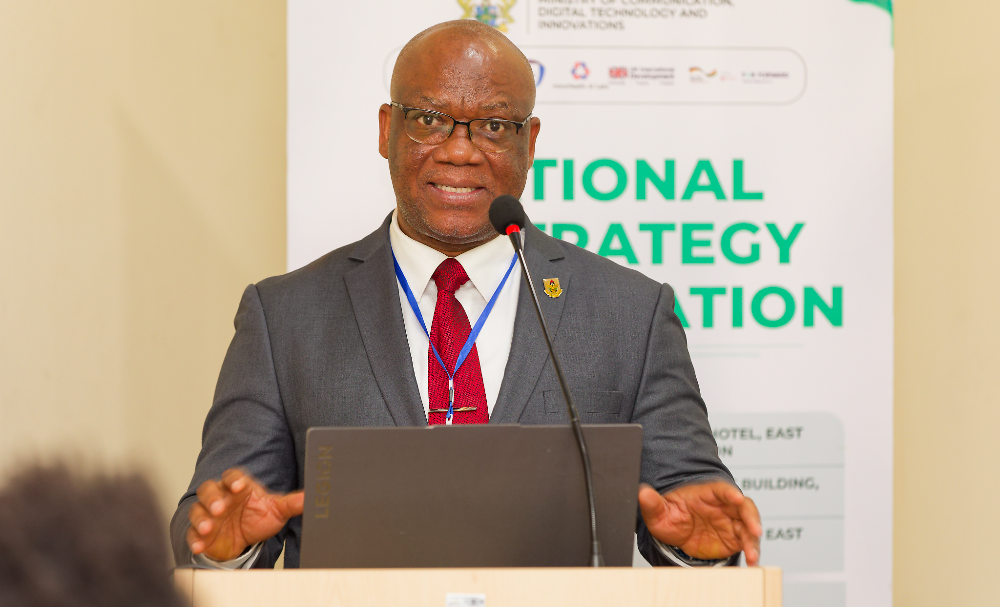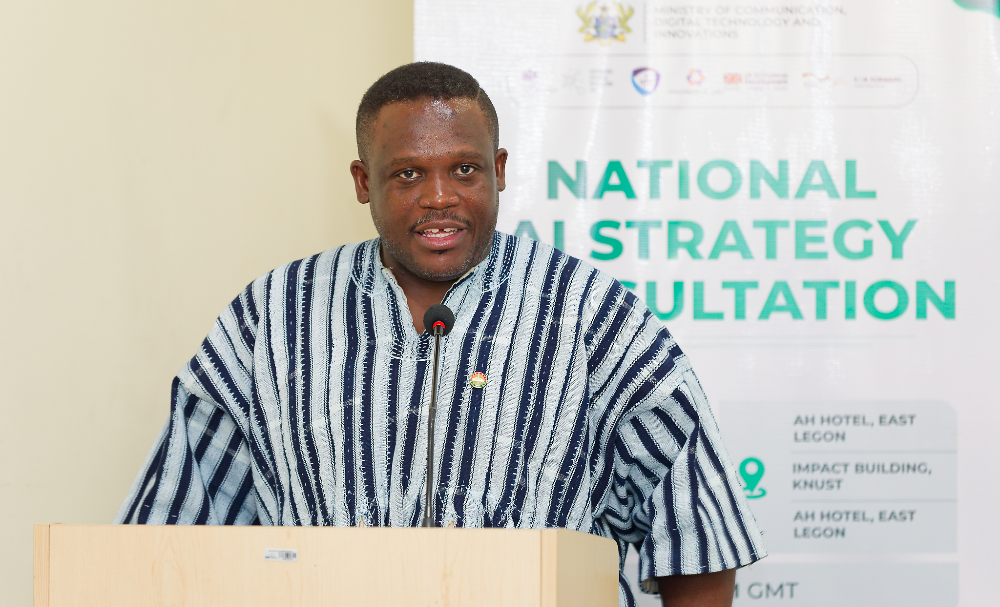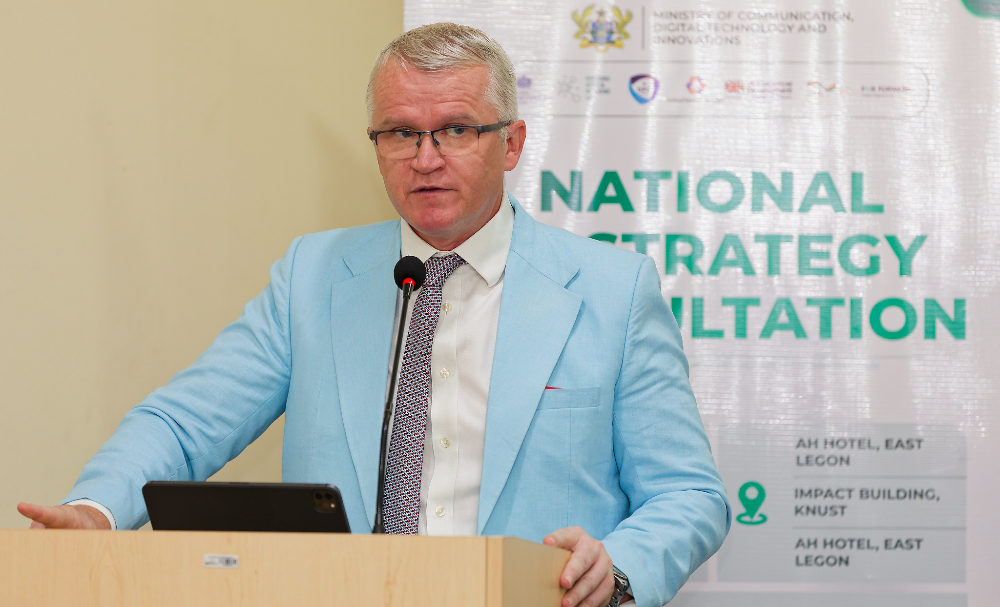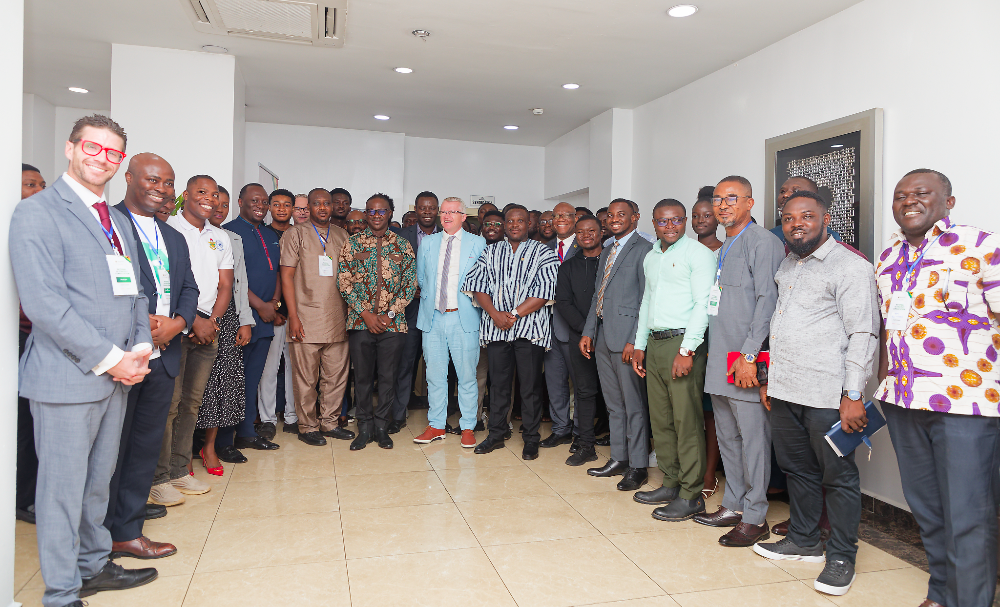The Kwame Nkrumah University of Science and Technology (KNUST), through its Responsible AI Lab (RAIL), is leading the coordination of Ghana’s National Artificial Intelligence (AI) Strategy, following a high-level consultation hosted in collaboration with the Ministry of Communication, Digital Technology and Innovations and the British High Commission.
Held at the AH Hotel in East Legon, the National AI Strategy Consultation convened government officials, academia, industry leaders, civil society actors, and tech innovators to shape an inclusive and responsible AI ecosystem aligned with Ghana’s development goals.
KNUST’s Responsible AI Lab (RAIL) is playing a central role in steering the review and adoption of the strategy, which is scheduled for rollout by June 2025.

Prof. Jerry John Kponyo, Principal Investigator and Scientific Director of RAIL, presented the draft strategy and outlined eight key pillars designed to ensure ethical and transformative use of AI in sectors such as healthcare, education, governance, and agriculture.
“We consider this a sacred duty,” Prof. Kponyo stated. “KNUST is fully committed to engaging all stakeholders and ensuring the strategy is adopted on schedule.”
Samuel Nartey George, Minister for Communication, Digital Technology and Innovations, declared AI a national development priority.

“Data alone isn’t enough, it’s the intelligence we apply that will revolutionise healthcare, smart cities, and financial inclusion,” he said. He also announced the launch of the 1 Million Coders Program to equip Ghanaian youth with future-ready skills.

Keith McMahon, Deputy British High Commissioner to Ghana, applauded the initiative, saying: “Globally, we are behind in AI adoption, but today’s discussions give me hope that Ghana recognises its transformative potential.” He reaffirmed the UK’s support for Ghana’s AI strategy, particularly in research, skills development, and technology transfer.
Elikplim Sabblah, Technical Advisor for GIZ Ghana’s FAIR Forward initiative, shared lessons from successful AI policy initiatives in Rwanda and Kenya, and expressed strong support for Ghana’s inclusive approach.
Darlington Akogo, CEO of MinoHealth AI Labs, projected a $20 billion GDP boost if Ghana embraces AI with urgency and focus. He called for the creation of a National AI Fund and a clear implementation roadmap.
Participants, including developers, researchers, and policy advocates emphasised the importance of local relevance, capacity-building for teachers, and curricular reform.
The event concluded with a call for continued collaboration and feedback to ensure that Ghana’s AI strategy is both representative and visionary.

















